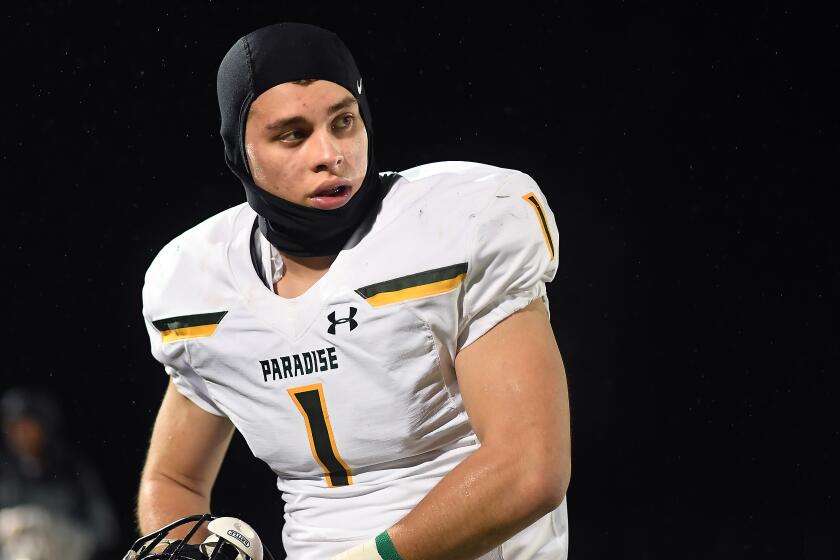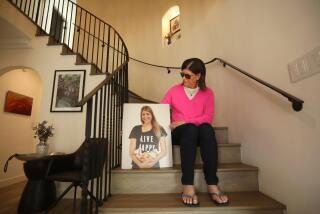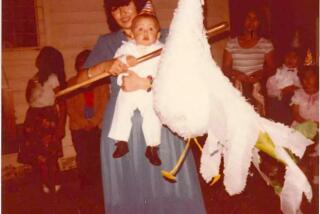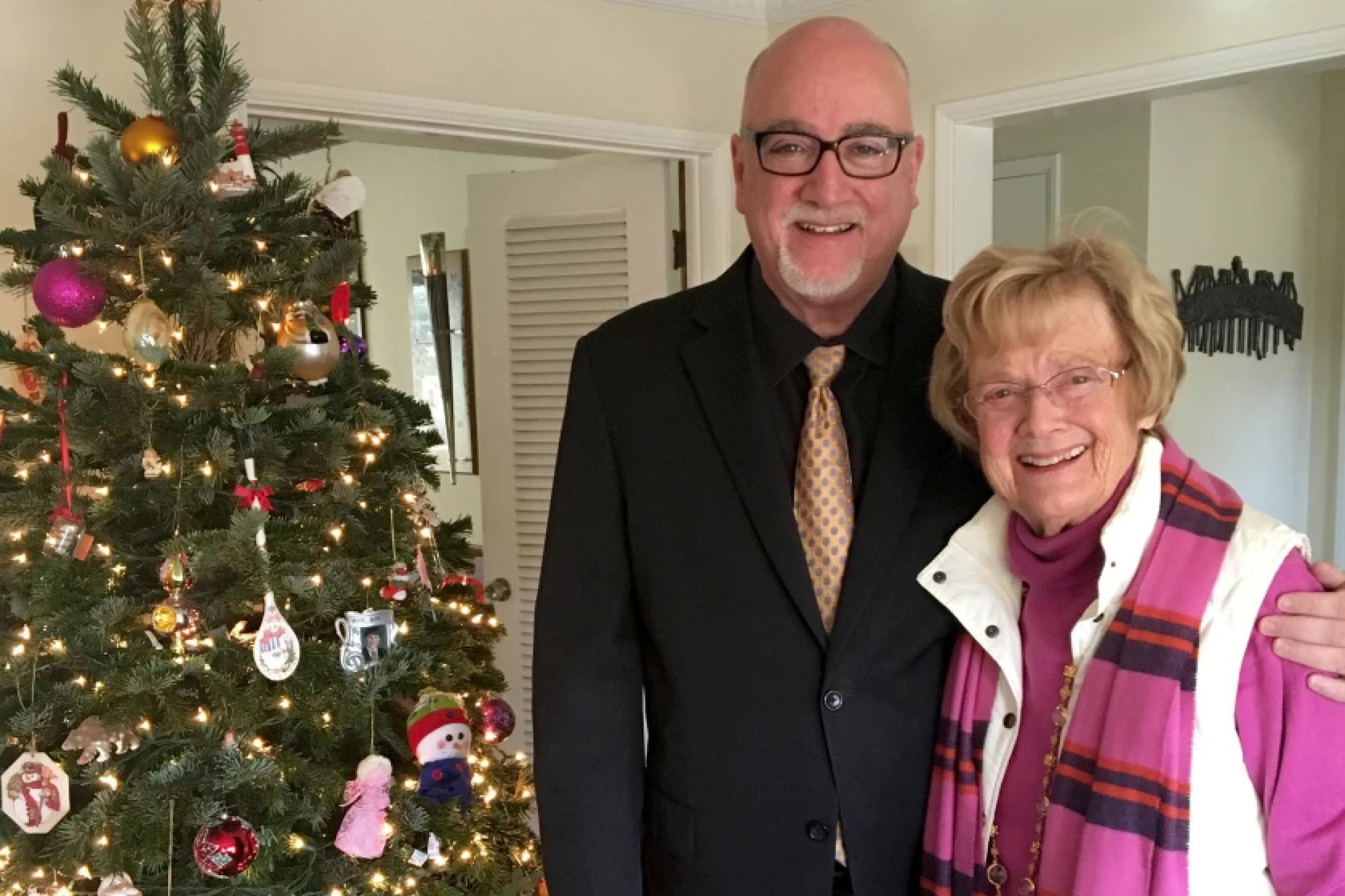
- Share via
Every conversation with my mother during the last two years ended the same way.
I would ask about her latest bridge game.
“Finish the book,” she would say.
I would ask about her latest doctor visit.
“Can you please finish that book?” she would say.
I was incessantly curious about the battles with loneliness fought daily by a 90-year-old widow who ran her world from my late father’s chair in the corner of a modest house papered in photos of her four children and nine grandchildren.
“We’re not talking about me,” she would say. “Hang up the phone right now and get to work on finishing that book!”
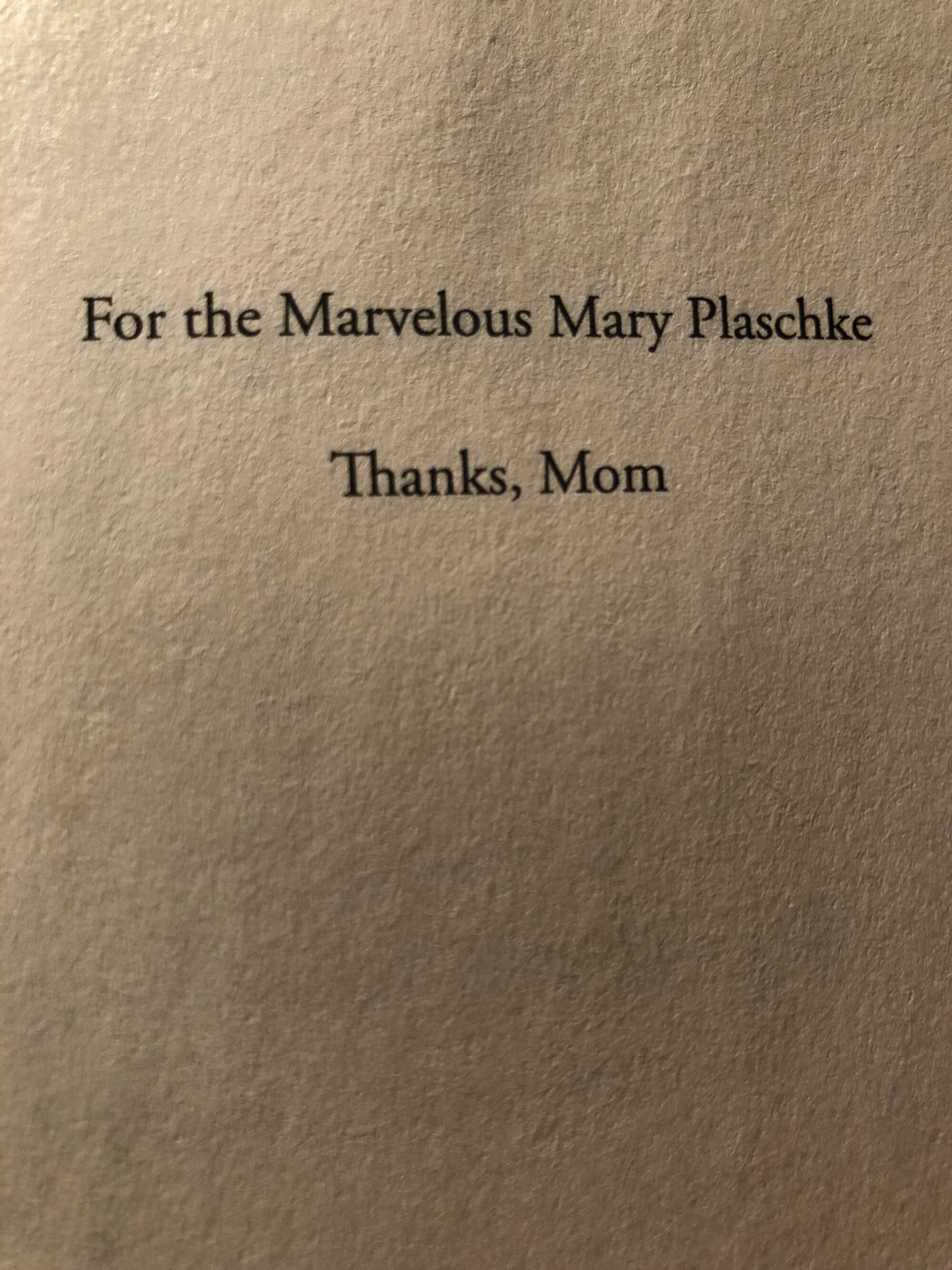
As regular readers of this column and my Twitter followers know, for most of the last six decades I talked to my mother virtually every day, and yet she never let it be about her. No matter how hard I tried to care for her, she was always caring for me.
This was true even during those innocuous moments when we would interrupt each other by both speaking at the same time.
“You first,” she would say.
Me first, always me first, my problems, my hopes, my dreams and, during the last two years, my book.
I had signed a contract to write “Paradise Found,” a book based on a series of articles I had written for The Times about the 2019 Paradise High football team, a resilient group of kids attempting to resurrect a town decimated by the deadliest wildfire in California history.
She was my first reader, my first editor, even my first publisher, her weary fingers tapping out my first words in a darkened basement in the middle of the night.
The writing began in 2020, then stalled when the pandemic began, then stalled again when I was stricken with COVID-19, and basically the book became a challenging marathon of late nights and exhausted days, and so much weight that it nearly broke me.
My mother, with a feisty drive that matched her flaming red hair and wondrous freckles, wouldn’t let that happen. She continually propped me up. She constantly pushed me toward the finish line. While other family members and friends understandably grew weary of discussing my painfully slow progress, she asked about nothing else.
It was no surprise. I have written columns about her before. This was, you might remember, a woman who typed up my first elementary school sports stories and drove them to the local weekly newspaper in the middle of the night. She was my first reader, my first editor, my first publisher, my biggest fan, and, six decades and six books later, she was still cheering.
Our daily phone calls would usually last around 30 minutes, and I know she valued the company so much she wanted to talk for hours. But sometimes she was so intent on inspiring me that she would hang up after five minutes, saying, “That’s it. You’re procrastinating by talking to me. Go write that book.”
Click.

She talked about one day holding the book in her hands. She talked about flying to Los Angeles from her Kentucky home to attend the book launch party. She had not flown in several years, her airborne days were supposedly done, but by God, she was going to get a neighbor to drive her to the airport, she was going to slip a few wrinkled bucks to the wheelchair handler, she was going to claim that first row aisle seat on Southwest, and she was going to be there.
“Finish the book, Billy, and we’ll celebrate,” she said. “Finish the book. I know you can. I know you will.”
She was right. She was always right. I finished the book. It was several months ago. I called her first, and she didn’t answer because she couldn’t find her phone, but I knew she was scrounging around her purse for it, so I kept calling until she finally picked up.
“Mom, we did it!” I said.
“Yes!” she said, my biggest cheerleader letting out the loudest cheer. “Yes! Yes! Yes! Yes!”
Then she paused.
“But don’t say ‘we’ did it, because you did it,” she said. “Your mother is not a writer, dear. All I did was answer the phone.”
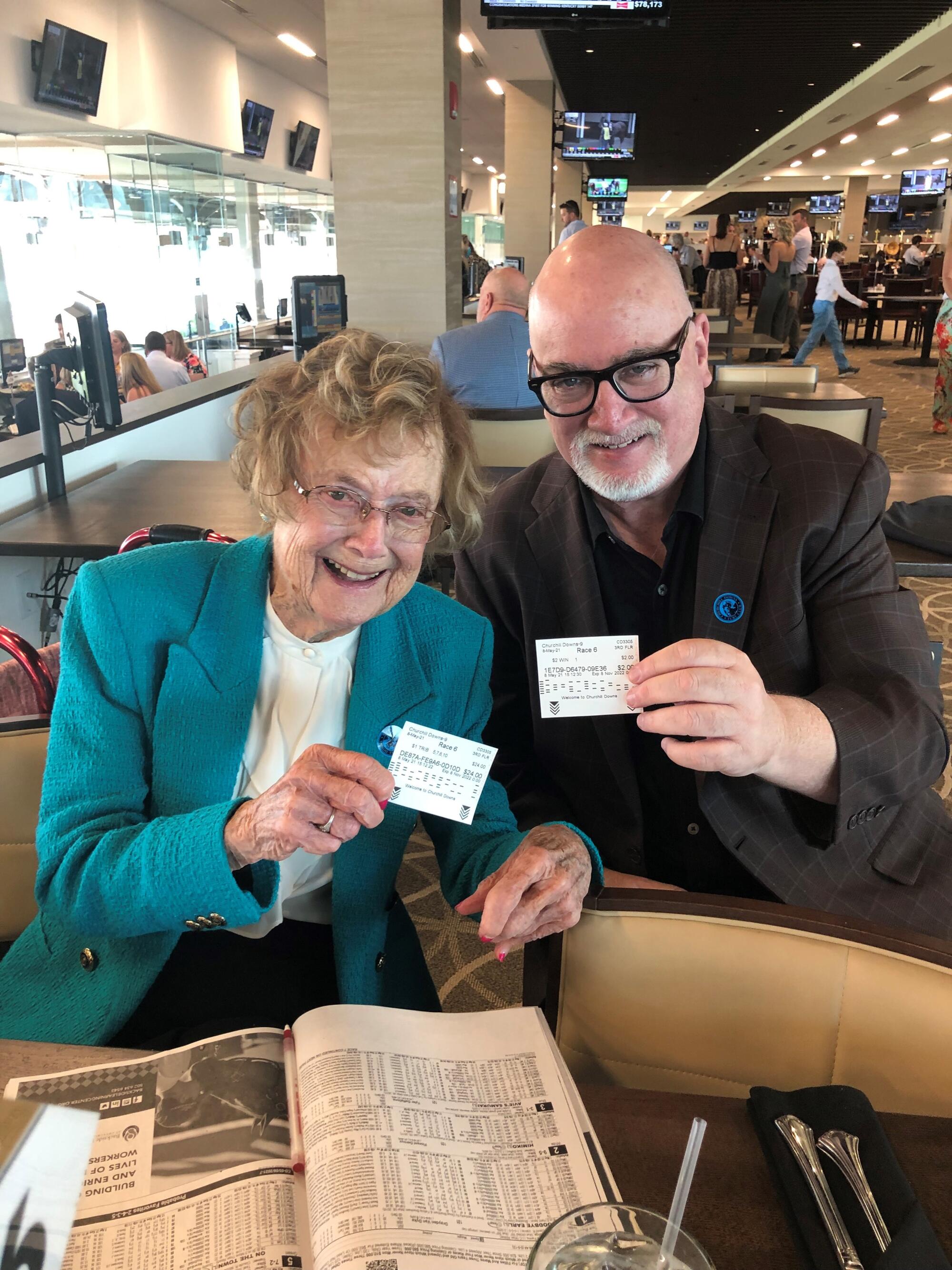
I couldn’t wait for her to see the book. It contained what I hoped would be the surprise of all surprises. I had made certain her name was the first one in the manuscript. It was on the dedication page. She owned that dedication page.
“For the Marvelous Mary Plaschke,” it read. “Thanks Mom.”
For me, this page was the best part about writing the book. She was going to be blown away. I had it all planned out.
I was going to arrange for a copy of the book to arrive at her home on the Nov. 2 publication date. I was going to phone her that afternoon, direct her to that page, and show her my gratitude, printed in black and white for us to share and for the world to see. I couldn’t wait to hear her reaction. I could totally imagine the emotional call, the big reveal, the book party plans, both of us crying.
I’ll have to spend the rest of my life imagining it.
Three days before the publication date, my mother died.
She never saw the book she created. She never saw the dedication she inspired. She never held the thick pages in her slender fingers and felt the substantial weight of my love.
A week earlier she had been rushed to the hospital with severe abdominal pain, underwent emergency surgery, and never fully regained consciousness.
It happened out of nowhere. She was invincible, then she wasn’t. We had such great plans, then we didn’t. I was so brilliant, then I was just a fool.
I shouldn’t have tried to surprise her. I should have sent her the galley proofs the moment I received them. I should have sent her a screenshot of the dedication page the moment I finished it. I should have been less sentimental and more realistic and understood that you should never wait to show your heart to an aging loved one because you never know how long they’ll be around to see it.
I finished the book but, in one way, I never will.
I was going home to Kentucky this Christmas to hang out with Mom. I have since cancelled my trip. There’s no home without her.
I rushed back to Kentucky immediately upon learning of her illness and, toting my first copy of the book, I arrived just after her surgery. I held the jacket in front of her face. I turned to the dedication page and read it aloud. Through tears, I kept saying, “We did it, we did it.”
It was too late. She had no response. A nurse gently pulled me away. The book went back in my briefcase where it sits today.
Since then, in my dreams, I have seen my mother several times, and through her comforting smile, I have been again inspired, this time to send a Christmas message to all those still lucky enough to be surrounded by aging loved ones during these times of COVID.
Go to them. Hug them. Cherish them. Comfort them. Listen to them. Offer thanks. Offer forgiveness. Offer yourself.
Spencer Kiefer, a running back on the Paradise High football team, didn’t think he’d survive the 2018 Camp Fire. Here’s the story of how he escaped.
My mother loved Christmas. As a child of poverty, she never had a tree or presents until an aunt would show up with everything on Christmas Eve. As an adult, she would decorate a tree on Thanksgiving weekend, leave it up until January, and surround it with dozens of glittering store-wrapped presents and cookie-filled tins.
I was going home to Kentucky this Christmas to hang out with Mom. I have since canceled my trip. There’s no home without her.
Is there somewhere you need to be? Go there. Is there someone you need to call? Pick up the phone.
Don’t let old wounds restrain you. Don’t let the constant drone of life lull you into a false sense of security. Call them now. Visit them now. Hug them forever.
The Marvelous Mary Plaschke would surely approve.
More to Read
Go beyond the scoreboard
Get the latest on L.A.'s teams in the daily Sports Report newsletter.
You may occasionally receive promotional content from the Los Angeles Times.

